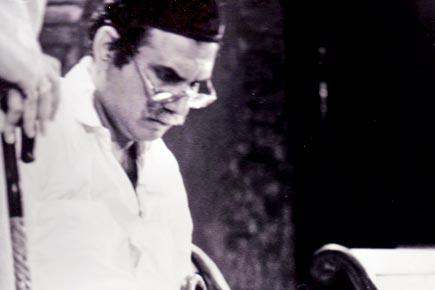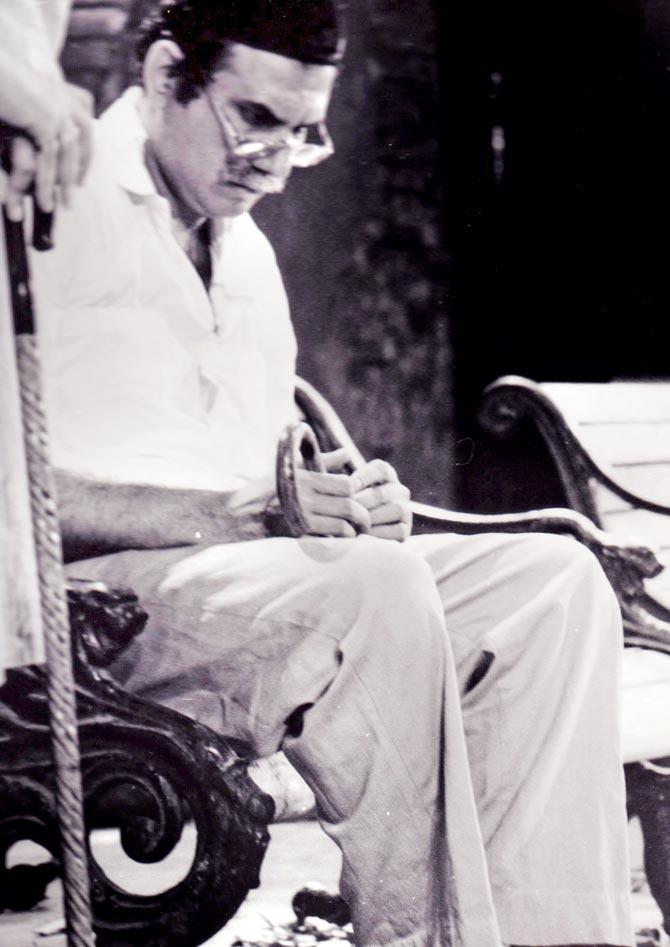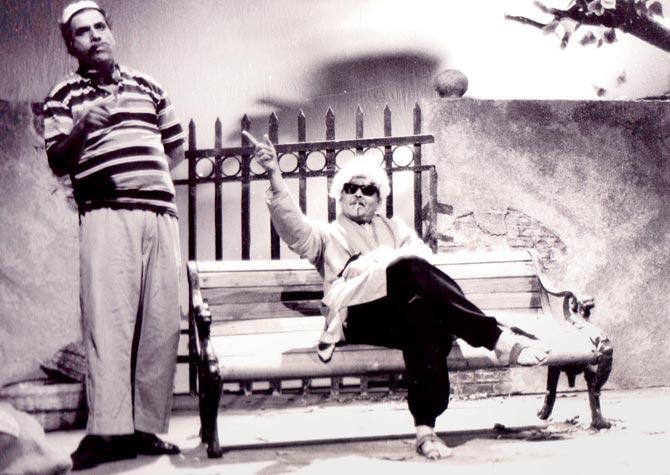The writer-director of the hugely popular I'm Not Bajirao (that also gave us Boman Irani) tells of how Matunga-speak made it to a stage familiar until then with the Queen's English


Boman Irani as Dhunjisha Batliwalla
ADVERTISEMENT
 It was in the early '90s that I was in New York. A play called I'm Not Rappaport was playing at the Booth Theatre on Broadway. Two old men — a cranky old Jewish waiter and ex-Communist firebrand and his African American companion, a fragile janitor — sit on a park bench in Central Park and chat about life, liver dysfunction and dealing with life's uncertainties like modern day Don Quixote and Sancho Panza, making up stories to pass the time. It was one of those great 'aging' comedies in the 'Grumpy Old Men' tradition.
It was in the early '90s that I was in New York. A play called I'm Not Rappaport was playing at the Booth Theatre on Broadway. Two old men — a cranky old Jewish waiter and ex-Communist firebrand and his African American companion, a fragile janitor — sit on a park bench in Central Park and chat about life, liver dysfunction and dealing with life's uncertainties like modern day Don Quixote and Sancho Panza, making up stories to pass the time. It was one of those great 'aging' comedies in the 'Grumpy Old Men' tradition.
Sitting in that Manhattan auditorium, I thought of the possibilities of adapting it to India, Mumbai specifically. It would of course, need a transposition to our milieu – an overhaul actually, even though old age is a universal issue. But Mumbai is an insular society, meaning our old are ours; dealing with them, a specific issue that's unique to us.
Plus, back then, we poo-pooed old age homes (it's only as we get more nuclear that settling our old in institutions becomes a reality). So, the context had to be seeped in the city. The old Jew automatically became Maharashtrian. Both characters, Nat Moyer and Madhukar Kulkarni were political dynamos living in an age when soapbox was out of vogue and Leftist politics had long vanished. The shaky African American janitor could become a Bawa, who was a building society manager scared of losing his job and flat. It occurred to me that Parsi Colony's Five Gardens would be an ideal location for two curmudgeonly septuagenarians to hang out shooting the breeze. Especially since Dadar Parsi Colony dovetailed with the Hindu Colony; both housing societies, culminating in the park.

Veteran actor, late Sudhir Joshi as Madhukar Kulkarni (right) makes a point to Boman Irani. Pics Courtesy/Rahul da Cunha
I cast a Maharashtrian veteran, Sudhir Joshi, under-confident of his English as Madhukar Kulkarni, and the 35-year-old Boman Irani as my Dhunjisha Batliwalla. Helped by both actors, I wrote an adaptation that included Bambaiyya English, simple Marathi, Hindi and Parsi Gujarati. This was pretty much the first time these four dialects had been presented on an Indian English stage.
The play delved into old Bollywood, glaucoma-ridden eyes, taporis, interfering children — it was Bombay (not Mumbai yet) through and through. But crucially, it was reality as we knew it, a move away from Shakespeare and Arthur Miller. Not USA, this was us.
We, that is my partners at Rage Productions, Rajit Kapur and Shernaz Patel, had no idea how the play would do, since it was uncharted territory. Would audiences weaned on the Queen's English at the NCPA relate to the language of Matunga? Crucially, how would entertainment-hungry theatregoers respond to two 70-year-olds sitting on a crow droppings infested park bench chatting aimlessly.
We opened to a full house at the Tata Theatre on May 19, 1996. Five hundred shows later, we closed in December 2005, only because of the untimely demise of Sudhir bhau. The play came to define Bombay, as audiences saw it three and four times each. For 10 years, we packed houses, as we became a sort of tourist attraction for out-of-towners too.
In some ways, I'm Not Bajirao ushered in a less formal dialogue style on stage – many of us, including Vikram Kapadia and Shiv Subramanian, who till then had done plays with characters called Bob and Barbara, had for some time felt the need to stretch our writing muscles, find our own voice, engage with audiences with more association. Those plays from the mid-90s defined where theatre would head in the future.
My contribution was I'm Not Bajirao.
The writer is an adman, theatre director/playright, photographer and traveller. He tweets @RahuldaCunha
 Subscribe today by clicking the link and stay updated with the latest news!" Click here!
Subscribe today by clicking the link and stay updated with the latest news!" Click here!








